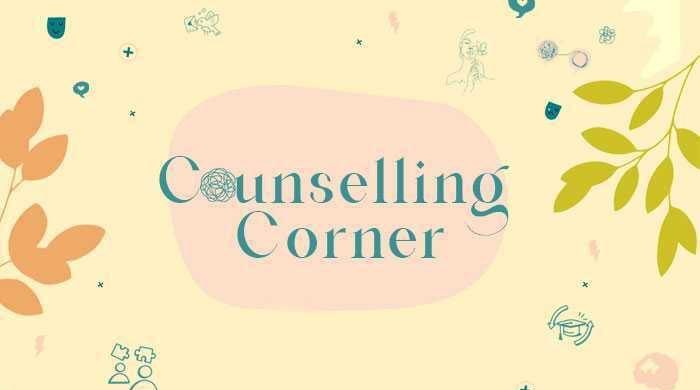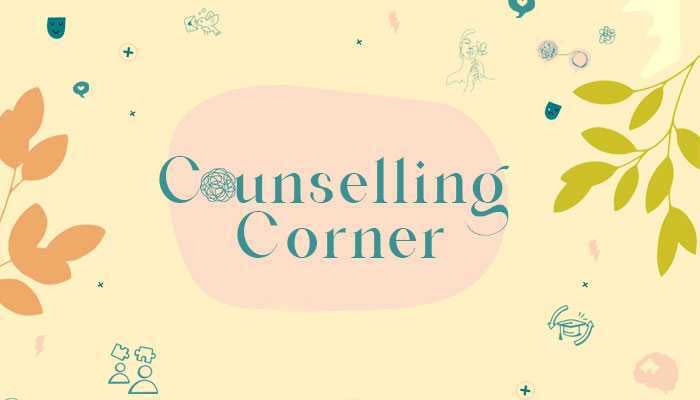Dear Haya,
I can’t feel happy and feel very numb. Not sure if it is related to certain previous trauma or not, but I do not feel certain feelings anymore. I can hardly remember the last time I was happy.
Please guide me on how I can feel more connected to my feelings.

Dear Anon,
Thank you for reaching out and sharing what you are going through. It takes courage to name the feeling of emotional numbness you are experiencing – a state that can often feel confusing, insulating and even scary. Although I do not know the full extent of your story, what you have described is something that many individuals experience, especially those who have endured long -term stress, unresolved trauma or emotionally overwhelming.
The fact that you reach out and are self -conscious is a positive sign of your own hand. And the first sign of improvement is to recognize the characters.
In response to your query, happiness is a feeling like many other emotions intended to be felt. It does not mean that we will feel happy all the time, but there will be moments that we will experience moments of happiness.
If you have not experienced any kind of emotion in the past – it is alarming.
Let’s look to see understanding emotional numbness.
The first thing to know is that emotional numbness is not a mistake or failure – it is actually your body’s way of protecting you. When emotional pain becomes too overwhelming or lasts too long, your nervous system may respond by “closing” your access to emotions. This is a survival response, not a conscious choice. This is how your system is trying to protect you from pain that felt too big to deal with at that time.
This kind of shutdown is especially common in people who have experienced trauma. And it is important to understand – trauma does not always look like a great dramatic event. It can be all that felt too much, too fast or too early for your nervous system to treat. It could have happened in childhood, in your teenage years or even in adult age. And sometimes that’s not what happened, but how alone or insecure you felt while it happened.
When these experiences are not fully treated, they build up and we often suppress the emotions that are bound to them – not because we want to, but because we had to just get through. Over time, this emotional “freezing” becomes other nature. It can make you feel cut off not only from painful feelings, but also of joy, connection, ality and even love. It is the painful paradox of emotional numbness: it keeps the pain out, but it also keeps the good things out.
You may not knowingly remember everything that happened, but your body does. As it says, “The body holds the scoring.” Every experience we review – especially those we do not fully treat – leaves a mark in the nervous system. And when the nervous system feels firm, it can lead to a sustained state of emotional numbness.
Our nervous system has several natural reactions to stress: fighting, flight, freezer and fawn. These are all normal and necessary survival conditions. Ideally, we move in and out of them depending on what we need at the moment. But when we are stuck in one of them – as a freezing state – it can lead to feeling emotionally closed, disconnected or numb.
From what you have described, it sounds like your nervous system may be in a freezer. This means your body is trying to protect you by remaining quiet, quiet and emotionally “offline.” It’s not your fault. And you’re not broken.
The good news is: Just as your system adapted to survive, it can also learn to feel again. Healing is possible. It begins by understanding what is happening inside you, gently joining your body and learning that it is safe to feel again – one small step at a time.
Let’s see how you can get you:
The first step towards re -connection is not to force emotions to return, but to gently make room for them. Getting away from a freezer state in the nervous system is possible – but it requires patience, compassion and gentle steps. The freeze response often happens when the body feels overwhelmed and helpless, so healing requires to create a sense of security, connection and movement again – slowly and consistently.
1. Start with security
Your nervous system needs to know that you are safe now even if you didn’t feel safe in the past. This starts with developing emotional security in yourself. Are there moments in your day where you even feel a little safe, calm or grounded? Try to raise awareness of these micro-moments and expand them slowly. Recognize them. Insure yourself mentally: “I’m sure right now.” You may not feel it right away, but repeating this gently may begin to blow up your system again.
2. Connect again with the body – gently
Mindfulness practices – such as body scans, grounding or gentle breathing – can help you connect again with the sensations in your body, which is the gateway to emotion. Start your mornings with breathing work (they are many guided meditations that can help you with this eg Insight Hours, Calm)
3. Name what you feel (even though it is nothing)
Try to say out loud or write, “Right now I feel numb, or I don’t know what I feel” to name it without judging it creates space. Even if its nothing is still a form of emotional honesty. Over time, you may notice glimpses of other emotions – such as sadness, tranquility or even curiosity.
4. Join creative expression work and movement
Expressions and movement are good ways to cure the nervous system. For example, journaling, music or easy movement like yoga or walking will help you express and release what is stored within.
5. Work with a trauma-Informed Therapist (If possible)
Therapists trained in somatic therapy, EMDR or polyvagal-informed approaches can be deeply supportive in guiding you back in a regulated state.
Remember that you are not destroyed. Numbness is not the absence of emotion – it’s your body’s way of doing too much, too fast, too long. Getting out of a freezer state is not about knocking out of it; It’s more like slow thawing after being in the cold for a long time. When sensations and emotions start to return, it can feel uncomfortable – but it is a sign that your system is waking up. Healing does not happen at once, but gradually and with care. Give yourself permission to move at your own pace. Your body is wise – it has protected you, and with gentle support it can learn that it is safe to feel again.
– Haya

Haya Malik is a psychotherapist, Neuro -Linguistic Programming (NLP) practitioner, company’s well -being strategist and trainer with expertise in creating organizational cultures that focus on well -being and raise awareness of mental health.
Send her your questions by filling in This form or e -mail to [email protected]
Note: The above advice and opinions are the author’s and specific to the query. We strongly recommend that our readers consult relevant experts or professionals for personal advice and solutions. The author and geo.tv take on no responsibility for the consequences of actions taken based on the herein given. All published pieces are subject to editing to improve grammar and clarity.




